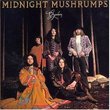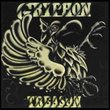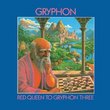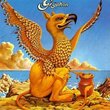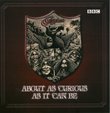| All Artists: Gryphon Title: Glastonbury Carol Members Wishing: 3 Total Copies: 0 Genre: Rock Styles: Folk Rock, Progressive, Progressive Rock Number of Discs: 1 SwapaCD Credits: 1 UPC: 766482517145 |
Search - Gryphon :: Glastonbury Carol
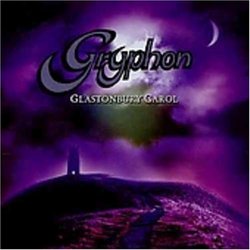 | Gryphon Glastonbury Carol Genre: Rock
This album was compiled with full assistance from the band and features their two BBC Radio 1 Sessions, five tracks recorded in 1972 & four tracks in 1974. Also included here is their 'lost' single, 'Glastonbury Car... more » |
Larger Image |
CD DetailsSynopsis
Album Description This album was compiled with full assistance from the band and features their two BBC Radio 1 Sessions, five tracks recorded in 1972 & four tracks in 1974. Also included here is their 'lost' single, 'Glastonbury Carol', which was originally commissioned for the closing titles of the film, Glastonbury Fayre. Includes 8-page booklet. Hux. 2003. Similar CDs
|
CD ReviewsGreat Live Album Brian Greuling | Boone, NC United States | 09/20/2004 (5 out of 5 stars) "If you're a fan of the first two Gryphon releases, Gryphon and Midnight Mushrumps, this is a great addition to your music collection. The sound quality is excellent, much better than I was expecting. The first five tracks, recorded in 1972,appear on their first album. The version of Estampie in this collection has an extended bassoon solo. The next track, recorded in 1974, does not appear on any of their studio releases, but sounds like it should have been included on their debut album. The next three tracks comprise their magnum opus Midnight Mushrumps. The last track, Glastonbury Carol, subtitled "the 'lost' single" is superb. Not recorded live, this track was recently recovered from their recording engineer. For me, it's the highlight of this collection. It mixes haunting vocals with classic with an upbeat middle section. Overall, I highly recommend this to any Gryphon fan." FIND what was lost! C. Lichiello | Zanesville, OH USA | 04/24/2005 (5 out of 5 stars) "I'll be brief. See Brian Greuling's review as I concur with that commentary. To my ecstatic shock and amazement this recent Gryphon release shot straight to #3 on my Gryphon-favorite list. If you ever enjoyed this band's quircky fusion of futuristic electro-world music and Renaissance style rock'n'roll, THIS RECORD IS ABSOLUTELY ESSENTIAL to at least the 10th power! In addition to the fact that "Opening Number" & "Glastonbury Carol" are unavailable elsewhere, if you have surround-sound audio, cue up this version of "Midnight Mushrumps", click on Dolby Pro-logic II and make sure you have no recent incisions near your spine or you're gonna lose part of it! Wildly recommended disc!" Glastonbury Mott Kim Fletcher | Pattaya, Chonburi Thailand | 02/17/2006 (5 out of 5 stars) "Gryphon is one of the bands that epitomised the early seventies; the life of a Gryphon was not long, five years to be exact. But as the Gryphon grew up it changed like a chameleon, integrating into its scenery whilst becoming a powerful and influential beast.
Gryphon was always a band impossible to categorize, they were sort of labelled progressive rock, but if anything they could have been called retro rock. (Albeit with a progressive slant!) No instrument was too obscure to be used by one of the Gryphons, although a fancy for crumhorns must be acknowledged. I personally cannot resist just running a thumb over what instruments were used in the studio and the live stage. Beside various crumhorns (apparently they come in a wide range from high to low and resemble something like an early wooden six iron, can be spelt with a C or a K, and make a very jolly if rather rude noise. Rude as in school playground humour). Other instruments that were turned over in the Gryphon hands that were perhaps not considered run of the mill to your average rock band in the early seventies were recorders, bassoons, glockenspiels and yamaharmoniums, along with ordinary items such as pianos, organs, drums, guitars, and bass guitars. Whatever the band used in the studio was also taken along for live concerts, often creating great hilarity, as musicians desperately stumbled around looking for the next instrument they were supposed to play, usually finding it just in the nick of time. Over the course of the Gryphon's life, they started out as a sort of trio, Richard Harvey, Brian Gulland and David Obersle, developed into a bit of a four piece with the addition of a lead guitarist in the shape of Graeme Taylor, and then blossomed into the more traditional five piece rock band with the addition of Philip Nester on bass. This gave them a proper rock trio, whilst the other two could rush around at the front of the stage (Gryphons did not exactly rush, but a bit of mottistic license here). They of course went backwards becoming a four piece then a trio before disbanding in the wash of Punk rock in 1977. Four albums were cut for the progressive record label Transatlantic, and everyone a little gem, too. Firstly, the self titled `Gryphon' (1973) - now how many rock albums can claim to have a track written by the English King Henry VIII? Well Gryphon can. Then there was `Midnight Mushrumps', with its twenty-two minute instrumental title track, inspired from when Gryphon were asked to play along to a production of William Shakespeare's `The Tempest' at the National Theatre. Quickly on the heels of Mushrumps came `Red Queen to Gryphon Three' - a concept album based on a game of chess, I kid you not. This was an all instrumental album featuring some of the fastest recorder and crumhorn or even krumhorn playing you are ever likely to hear, perhaps paving the way for thrash metal, but perhaps not. The following year was the turn of `Raindance' (1975) which was Gryphon's attempt at more contemporary rock, which really kind of ruined the original effect. After this Transatlantic rather gave up on Gryphon and to be fair I think Gryphon was a bit on the tired side too, certainly its feathers had been ruffled when sent out on the road with big name progressive rock band Yes all across America, leaving the American audience very bemused by what they saw as a bunch of medieval wandering minstrels setting up on stage. One more album was released, `Treason' (1977) and to be quite frank the title is pretty apt. But in their day Gryphon was a joy to behold, always giving off a great vibe of fun, whilst showing off their musical skills. Transatlantic have now put together a double CD `Crossing The Styles' which collects together nearly everything that was released by Gryphon, and at over two and a half hours of wonderfully cheerful music is an absolute joy to listen to. Out of all the bands that came and went during the early and mid seventies `Gryphon' stands out as one of the most unique. In 2003 Hux records put out one more CD, a collection of two B.B.C. In Concert sets, one from 1972 recorded before anything from Gryphon had actually been released officially, giving us a very interesting insiders listen to the original concept of the band. This first session has five songs on it, four of which are traditional laments rearranged by the band, and one original, not that you notice much listening to the five of them in order. But it is crumhorns both high and low to the fore and a merry jig do they make; it is almost impossible not to tap your foot along to the rhythms, especially when the crumhorns break into snippets from `It's a long way to Tipperary' and `Somewhere over the Rainbow'. The second set recorded two years later shows the fully developed beast in all its five piece glory. Starting off with a bit of a jam between all the band members they then break into all three movements of `Midnight Mushrumps' written solely by Richard Harvey. There is still the unmistakable sound of the Gryphon there, but certainly a few tricks have been taken on board from other progressive rock bands of the time. At times they could almost be mistaken for early Genesis, not that this is a bad thing, everything has to progress, and when the recorders break back in again it is all refreshingly Gryphon again. `Midnight Mushrumps' must be considered Gryphon's finest piece a quite magical twenty minutes journey. When I say that Transatlantic collected up nearly everything that was recorded for their label by this wonderfully unique band, there was one track missing - a single called `Glastonbury Carol', a song commissioned by the people who made the Glastonbury film, but as the film was never released the song was obviously not used on the soundtrack and only released as a single. The single received no promotional push from Transatlantic, not really seeing Gryphon as `Top Of The Pop's' material. To make matters worse the little hole that you had to have in the middle of vinyl records, LP's as well as singles, was slightly off centre, so by the time the song came towards the end, it made an awful seasick inducing pitching and tossing, not conducive to massive sales. Fortunately the original tapes were found and the single has been tacked onto the end of these sessions as well as lending its name to the album. A great bonus as it remains one of Gryphon's most atmospheric tunes. Alas all good things must come to an end and by 1977 Gryphon was no more, but they leave behind a fine legacy of music, all available from the wonderful www.amazon.com After Gryphon came to its natural conclusion, all the members of the band went onto further success in their own fields: Graeme Taylor, Malcolm Bennett (who replaced Philip Nestor on bass guitar towards the end), and Philip Nestor became successful session musicians. After a varied career David Oberie now owns his own record label, Communique. Whilst both Richard Harvey and Brian Gullard work in the film and television soundtrack industry, with Richard Harvey at present in Hollywood putting the final touches to the soundtrack to this year's blockbuster starring Tom Hanks `The Davinci Code'. If anyone has any idea what a Gryphon or a Mushrump is please write to Mott at the address listed at the end of this review. Mott the Dog." |

 Track Listings (10) - Disc #1
Track Listings (10) - Disc #1